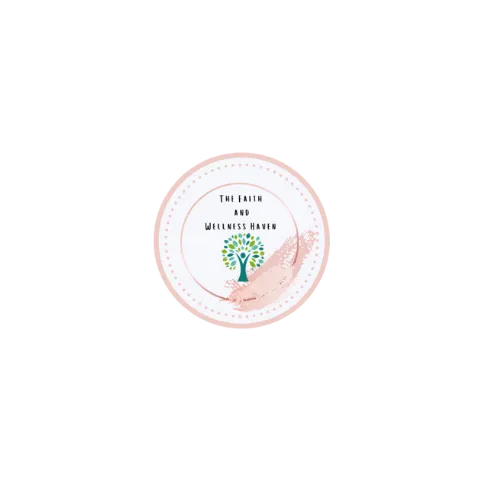
Will Weight Loss Lower My Blood Pressure
This post may contain affiliate links, which means I’ll receive a commission if you purchase through my links, at no extra cost to you. Please read full disclosure for more information.
Will Weight Loss Lower My Pressure?
Do you have concerns about your high blood pressure? Have you been trying to lower it but aren’t sure how? Well, while no single lifestyle change can guarantee a reduction in your numbers, research has shown that one of the best ways to control your blood pressure is through weight loss.
Living with high blood pressure can be worrying and frustrating, even more so if you don’t understand the risks associated with it. That's why we're here to talk about what exactly constitutes good and bad blood pressure levels – from how to measure it and understanding any lifestyle changes that need to be made in order to prevent any further health complications down the line. Ready for a deep dive into all things related to keeping your numbers low but stable?
What is blood pressure and what are the risks associated with high blood pressure
Blood pressure is the force of blood against a person's artery walls as it circulates through the body. It is measured in millimeters of mercury (mmHg) and is expressed as two numbers, with systolic pressure over diastolic pressure. Blood pressure naturally rises and falls throughout the day, but when it remains at an elevated level for an extended period of time, it can lead to potential health risks such as stroke, heart disease, kidney disease, and dementia.
High blood pressure occurs when there is too much force on the arteries. This can be caused by several factors including age, being overweight or obese, smoking, drinking too much alcohol or caffeine, lack of physical activity and poor diet. Additionally, certain medical conditions such as diabetes or high cholesterol may cause high blood pressure. Signs and symptoms of high blood pressure include severe headaches; blurred vision; chest pain; tiredness; and difficulty sleeping.
The most effective way to prevent high blood pressures is to maintain a healthy lifestyle which includes regular exercise and eating a balanced diet low in sodium. Reducing stress levels can also help lower blood pressure levels by reducing your heart rate and improving your overall well-being. Taking medications prescribed by your doctor may also be necessary if lifestyle changes alone do not help manage your high blood pressure levels. However, if left untreated or unmanaged properly through lifestyle changes or medications, long-term complications such as heart attack or stroke can occur from having chronically elevated levels of blood pressure

Systolic Pressure and Diastolic Pressure
The difference between systolic pressure and diastolic pressure is significant in regards to measuring and understanding blood pressure.
Systolic pressure is the top number in a blood pressure reading, which measures the force of the blood being pushed against the artery walls when your heart contracts. It's usually a higher number and indicates how hard your heart is working to pump blood through your body.
Diastolic pressure, on the other hand, is the lower number in a blood pressure reading, which measures the force of the blood against the artery walls when your heart relaxes. It's typically a lower number than systolic but still provides important information about how efficiently your heart can pump blood throughout your body. Knowing both numbers help medical professionals understand how well your cardiovascular system is functioning.
High systolic or diastolic pressures can be an indicator of potential medical problems that need to be monitored, such as hypertension and other cardiovascular diseases. Weight loss can help reduce both numbers by improving overall health and reducing strain on the heart, leading to better overall health for individuals with high Blood Pressure readings.
How weight loss can help to lower blood pressure
Weight loss can be a great way to lower blood pressure. Losing excess weight helps to reduce the amount of work your heart has to do in order to pump your blood, which in turn reduces the amount of pressure on your arteries and veins. Furthermore, when you are carrying around extra weight, it can also increase the levels of hormones like insulin and adrenaline that can raise your blood pressure. Even losing just ten pounds may make a noticeable difference in improving your overall health including reducing high blood pressure.
One of the most effective methods for achieving healthy weight loss is through making lifestyle changes such as increasing physical activity, eating healthier foods, and modifying behaviors related to food consumption. Eating smaller portions more frequently throughout the day instead of larger meals at mealtimes is one way to help you lose weight over time. It’s important to choose foods that are low in saturated fat, trans fat, and cholesterol and include an abundance of fruits and vegetables as part of a well-balanced diet. Taking regular walks or engaging in other forms of light swimming may also help you maintain steady weight loss while increasing muscle tone and improving overall circulation.
In addition to lifestyle changes, there are natural supplements available that can help lower blood pressure by helping with weight loss efforts such as natural diuretics. They act by decreasing water retention or stimulating metabolism respectively in order to help you get rid of any extra water stored in body tissues along with fat deposits. Natural diuretics will cause the body to excrete more sodium than normal which leads to decreased blood pressure levels while beta blockers promote faster metabolism which subsequently burns more calories leading to less fat storage and eventually reducing blood pressure levels too.
It’s important to note that if you’re looking into a supplement for helping with weight loss it’s best practice to consult with your doctor first as not all supplements will be appropriate for everyone’s individual needs and could potentially have serious side effects if taken without proper guidance from a medical professional. Ultimately, although it doesn't always guarantee immediate results, maintaining a healthy lifestyle with regular physical activity and healthy dietary habits combined with natural supplements where necessary can be highly beneficial for those seeking to reduce their high blood pressure levels through weight loss efforts.
CLICK THE IMAGE TO DOWNLOAD YOUR FREE BLOOD PRESSURE LOG!

The benefits of losing weight for those with high blood pressure
Losing weight can have a positive impact on those with high blood pressure. Reducing the amount of excess weight, a person is carrying can help reduce their overall blood pressure, leading to improved health and well-being. Weight loss also helps reduce the risk of developing other serious illnesses associated with hypertension such as heart disease and stroke.
For those looking to lose weight, there are several different strategies available. The most common methods include increasing physical activity levels, eating a healthy diet rich in fruits, vegetables and whole grains, as well as reducing processed foods and saturated fats. Additionally, reducing stress levels can be helpful for managing blood pressure levels; relaxation techniques such as biblical meditation can be beneficial in helping people manage stress levels more effectively.
Regular monitoring of blood pressure is essential for those looking to achieve better health outcomes in relation to hypertension. This can help individuals identify areas where lifestyle changes may be beneficial in order to improve one’s overall health and wellbeing. For example, if a person’s systolic reading is higher than 140 mmHg, then it may be beneficial for them to make adjustments such as exercising more regularly or changing their diet plan.
Weight loss offers many other exciting benefits too; improving the immune system, increasing energy levels, reducing joint pain and swelling caused by extra body weight, and optimizing sleep quality are all positive effects of engaging in successful weight management strategies. Furthermore, losing excess weight can also boost self-esteem and confidence by providing an individual with better body composition which further increases motivation towards making healthier decisions on a daily basis.
Ultimately, losing weight has countless advantages for those living with high blood pressure; it not only reduces the number of severe illnesses that one may develop due to hypertension but also boosts overall quality of life through improvements in general energy levels and mental health status. It is therefore important for individuals to stay consistent with their efforts when aiming towards achieving optimal results from their weight loss journey!

How does high blood pressure impact weight loss?
High blood pressure can impede any efforts to lose weight and maintain a healthy lifestyle. Having hypertension means that your heart needs to work harder than normal to pump blood throughout your body, meaning that it also needs more energy to do so. This extra energy usually comes from excess glucose, which causes your body to store more fat than usual, making it harder for you to lose weight. In addition, high blood pressure increases your risk for certain health conditions related to obesity such as diabetes and heart disease, further exacerbating any existing weight issues.
What is the Relationship between Weight Loss and Blood Pressure?
There is a strong link between maintaining a healthy weight and managing blood pressure. People who are overweight or obese have a higher risk for hypertension (high blood pressure). Weight loss has been found to be an effective way to reduce high blood pressure, as shedding even just a few pounds can result in lower numbers on the scale. Studies have shown that losing 10-15 pounds can lower systolic (top number) by 6-10 mm/Hg and diastolic (bottom number) by 3-5 mm/Hg. However, it’s important to note that exercise and dietary changes must be combined with weight loss to achieve the best results.

How Does Dieting Impact My Blood Pressure?
Eating a balanced diet is essential for both maintaining a healthy weight and controlling your blood pressure. A diet rich in fruits, vegetables, whole grains, lean proteins and low-fat dairy products can help you lose excess weight while still providing all of the nutrients your body needs. Reducing sodium intake may also help reduce high blood pressure since salt retains water in the body which causes fluid retention and swelling; this puts additional strain on your cardiovascular system resulting in higher readings on the scale.
Studies have shown that consuming omega-3 fatty acids found in foods like nuts (with caution if diagnosed with cardiovascular disease) and seeds may help reduce inflammation which helps keep your heart healthy and functioning at optimal levels.
Are There Any Diets Specifically Designed for People with High Blood Pressure?
Yes! There are several dietary plans specifically tailored for people with high blood pressure that are focused on reducing salt intake and increasing consumption of foods rich in vitamins, minerals, and other important nutrients like fiber and protein. My favorite weight loss program kit includes a menu guide that is adapted from the American Diabetes Association and the American Heart Association.
Maintaining Your Blood Pressure
Monitoring your blood pressure is important to maintaining good health. Did you know that normal systolic blood pressure is less than 120 and diastolic is less than 80? If not, it’s time to start paying attention! High blood pressure can lead to heart attacks, strokes, aneurysms, dementia, and kidney disease—and those are just a few of the potentially serious risks associated with uncontrolled hypertension.
Maintaining a healthy weight through regular exercise and a balanced diet can help to lower your risk for high blood pressure. Check your blood pressure regularly and log it in a journal so you can track any changes over time. Click here to download your free blood pressure log!
Don't miss out on the latest updates

© 2025 The Faith and Wellness Haven | Powered by Yahusha
